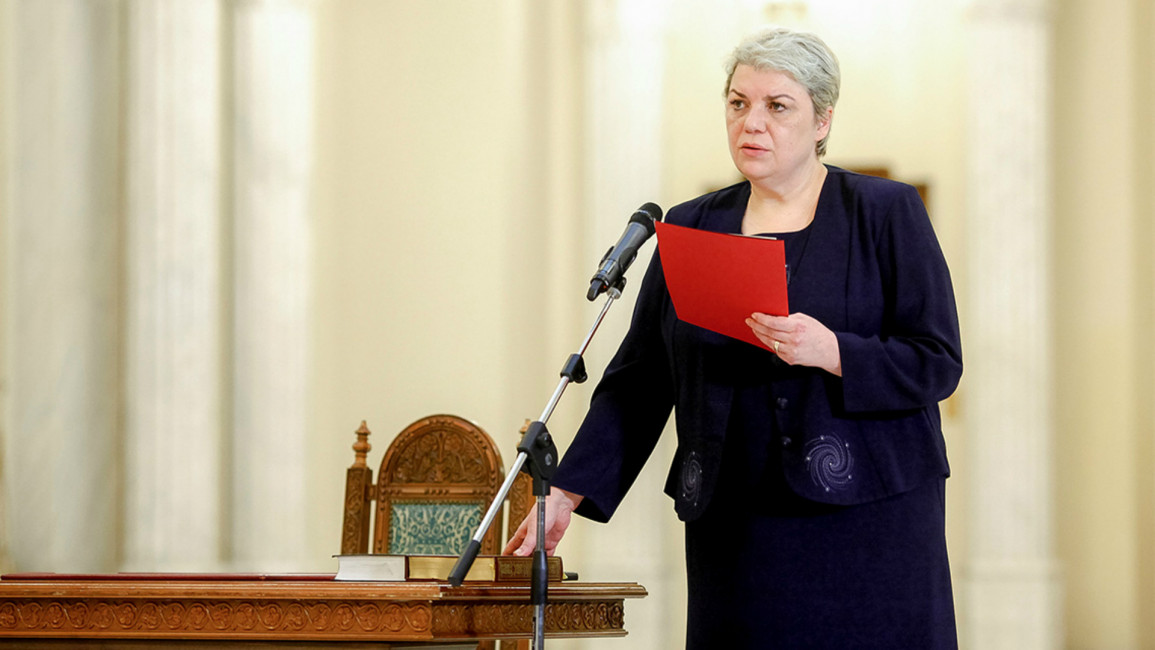Romania's first female, Muslim prime minister rejected
Klaus Iohannis gave no reasons for his rejection of Sevil Shhaideh, put forward by the Social Democrats (PSD), but there was speculation that it may be due to her Syrian husband's background.
"I have properly analysed the arguments for and against and I have decided not to accept this proposal," the president told reporters in a televised statement.
"I call on the PSD coalition to make another proposal," Iohannis said.
The PSD had suggested the previously little-known Shhaideh, 52, after its thumping poll victory on December 11 when it won 45 percent of the vote.
The leader of the PSD, Liviu Dragnea, had withdrawn his own bid to become prime minister because he is serving a two-year suspended sentence for fraud in a previous election.
Shhaideh's political experience is limited, having served as development minister for just five months before the previous PSD-led government resigned in late 2015.
This and her personal closeness to Dragnea - he was a witness at her wedding - have stoked opposition accusations that she would merely be his puppet.
Shhaideh is from Romania's small and long-established Turkish minority, but her Muslim faith is not thought to have been a problem for Iohannis.
Instead the focus may have been on her Syrian husband, whom she married in 2011.
According to non-profit investigative journalism group the Rise Project, he has several times expressed his support for Syrian President Bashar al-Assad and for Lebanese Shia movement Hizballah.
The 54-year-old worked in the Syrian agriculture ministry for 20 years before emigrating in 2011, according to media reports and Dragnea. He then served as an advisor to the Romanian agriculture ministry and gained citizenship in 2015.
Former Romanian justice minister Catalin Predoiu, from the centre-right National Liberal Party, said on Facebook that he "can't see how" the PSD candidate could get the necessary security clearance needed to be prime minister.
Being premier would "give her access to defence information classified as secret, including from NATO," the Western military alliance that Romania has belonged to since 2004, Predoiu wrote.
"In the absence of any explanations by the president, I suppose that his rejection is linked to questions of national security and because the United States would not have been very keen," political analyst Andrei Taranu told AFP.
Website HotNews cited unnamed sources as saying that the security services had "strongly cautioned" against Shhaideh's nomination because of the closeness to the Assad regime of her husband and his two brothers.
All eyes were on how the PSD would respond, with some in the party calling for Iohannis to be suspended. Party leader Dragnea was due to make a statement in the afternoon.
"Either the PSD shows its wisdom by making a new proposal (for prime minister) or we move towards fresh elections," Taranu said.
But he added that an attempt by the PSD to remove the president was problematic because under the constitution Iohannis is entitled to request a second proposal for premier.


![President Pezeshkian has denounced Israel's attacks on Lebanon [Getty]](/sites/default/files/styles/image_684x385/public/2173482924.jpeg?h=a5f2f23a&itok=q3evVtko)



 Follow the Middle East's top stories in English at The New Arab on Google News
Follow the Middle East's top stories in English at The New Arab on Google News


